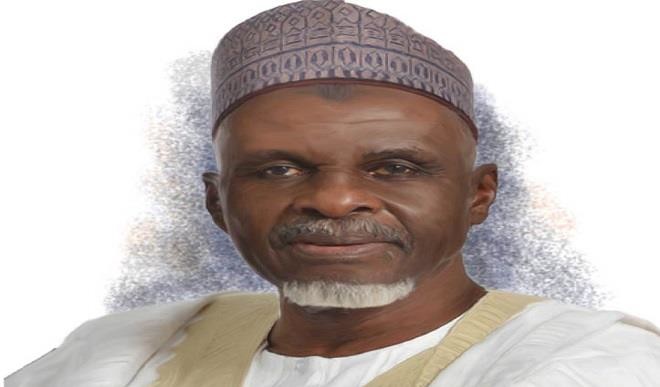Alhaji Ahmadu Abubakar: 74 great years, and counting
On Saturday, December 12, 1992, the late Chief MKO Abiola was in my hometown Muye in Niger State where he was invited to be chief launcher of an appeal fund organised by Niger Kakanda Development Association (NKADA). On arrival at the residence of his host, he asked for a toilet to ease himself. He was […]


On Saturday, December 12, 1992, the late Chief MKO Abiola was in my hometown Muye in Niger State where he was invited to be chief launcher of an appeal fund organised by Niger Kakanda Development Association (NKADA). On arrival at the residence of his host, he asked for a toilet to ease himself. He was shocked to be accompanied to a toilet with a kettle. After easing himself, the multi-billionaire caused little moments of scepticism in the sitting room when he asked if that was the residence of his host.
Chief Abiola further said he couldn’t believe someone superintending Nigeria’s economy would be so honest and live in such a modest house. He concluded that people like his host were rare in Nigeria. The person MKO was referring to was Alhaji Dr. Ahmadu Abubakar, OFR.
Dr. Abubakar was born on September 15, 1942 to the family of late great Islamic scholar Malam Abubakar of Alonchi Ward of Muye. As the son of an Islamic scholar, his first experience with learning was Qur’anic education under the tutelage of his father in 1946. From 1950-1953, he was a pupil at the Elementary Primary School Muye and attended Abuja Middle School from 1954-1956. He proceeded to Barewa College Zaria where he studied from 1957-1960.
He attended the Okene Secondary School and Kings College Lagos for his ‘A’ levels from 1962-1963. In 1977, he went on to the Ahmadu Bello University, Zaria where he obtained a diploma in management. He also attended various professional short and long-term courses/workshops and seminars on banking and finance both within and outside Nigeria between 1985 and1990; notable among them is Harvard University, Massachusetts Institute of Technology, Princeton and Stanford universities.
Some of the courses he underwent are Banking and Finance, Budget Planning, Development Economics and Foreign Direct Investment. He also attended a course organised by the World Bank and City Bank of America in 1985. In 1986 he attended a course at the Industrial Development Bank of India in 1986 and another in Arabic language organised in 1994 by the American University Cairo.
Dr. Abubakar started his public service career in 1964 with the defunct Northern Region’s agriculture ministry. He rose to the position of chief produce officer with the Niger State government in 1977. In October 1980, he transferred his services to the federal civil service as administrative secretary with the National Population Commission and where he later acted as the executive secretary. In 1985 he was redeployed to the Federal Ministry of Finance as assistant director and was later promoted to director in charge of home finance in January 1986.
As the director of home finance, he was in charge of banking and finance, revenue allocation committee and also served from 1986-1990 as the secretary on issues related to companies and corporations under the ministry. He represented the ministry as a director on the board of Nigerian Deposit Insurance Corporation and as the chairman, Nigerian Security Printing and Minting Company.
On January 3, 1990, he was appointed Director-General (Permanent Secretary) Federal Ministry of Finance. He was involved in the formulation and implementation of the nation’s economic policies. After serving for more than two years, he was appointed Minister of Finance and Economic Development on June 8, 1992 and served in that capacity until January 1993.
As a reliable and competent financial technocrat, he was appointed Chief Economic Adviser to the President on Finance and Economic matters from in March 1993 and until August 1993. As the Chief Economic Adviser, he represented the country at talks and meetings with several international financial bodies.
Back home, he was bestowed with the revered title of Walin Muye and Makaman Lapai by the Muye Community and Lapai Emirate Council, respectively.
Walin Muye is a progressive and a far-sighted leader, a patrician who believed in fairness and a promoter of peace and unity. He is a true gentleman – soft-spoken, but sternly of spine; thoughtful and gracious. And he has a spirit and essential decency that draw others to him. He is committed to racial harmony, religious tolerance, economic prosperity, social justice and has done his utmost best in all the offices he occupied throughout his career. Above all, he is widely-acclaimed as a straightforward and honest man.
Alhaji Ahmadu Abubakar is a man of many facets – altruist, integrity, decency, dignified leader and a philanthropist. A contemplative man by nature, he has his family, humanity, community, state, country, religion and business at the heart of his existence. This is because he understands the relevance of humanity and its looming potential which he contributes to its enlightenment, wherever he is.
At 74, he is still very active as a mentor and rallying point to many with a razor sharp mind. He is the type who doesn’t fancy the limelight, always ducking from cameras to avoid fame. All of his contributions come from the heart without a need for fanfare.
Living a remarkable life, he taught us many things, like hard work, sacrifice, self-confidence, charity, prudence, and focus, that we must succeed in spite of others, that if you hear negative things people say about you then you are not sufficiently concentrating on the task at hand. He is blessed with many children and grandchildren.
We celebrate Alhaji, as we fondly call him, and thank Allah for who and what he is to so many of us.
Mr. Yahaya wrote in from Jagbele Quarters, Muye, Niger State.
